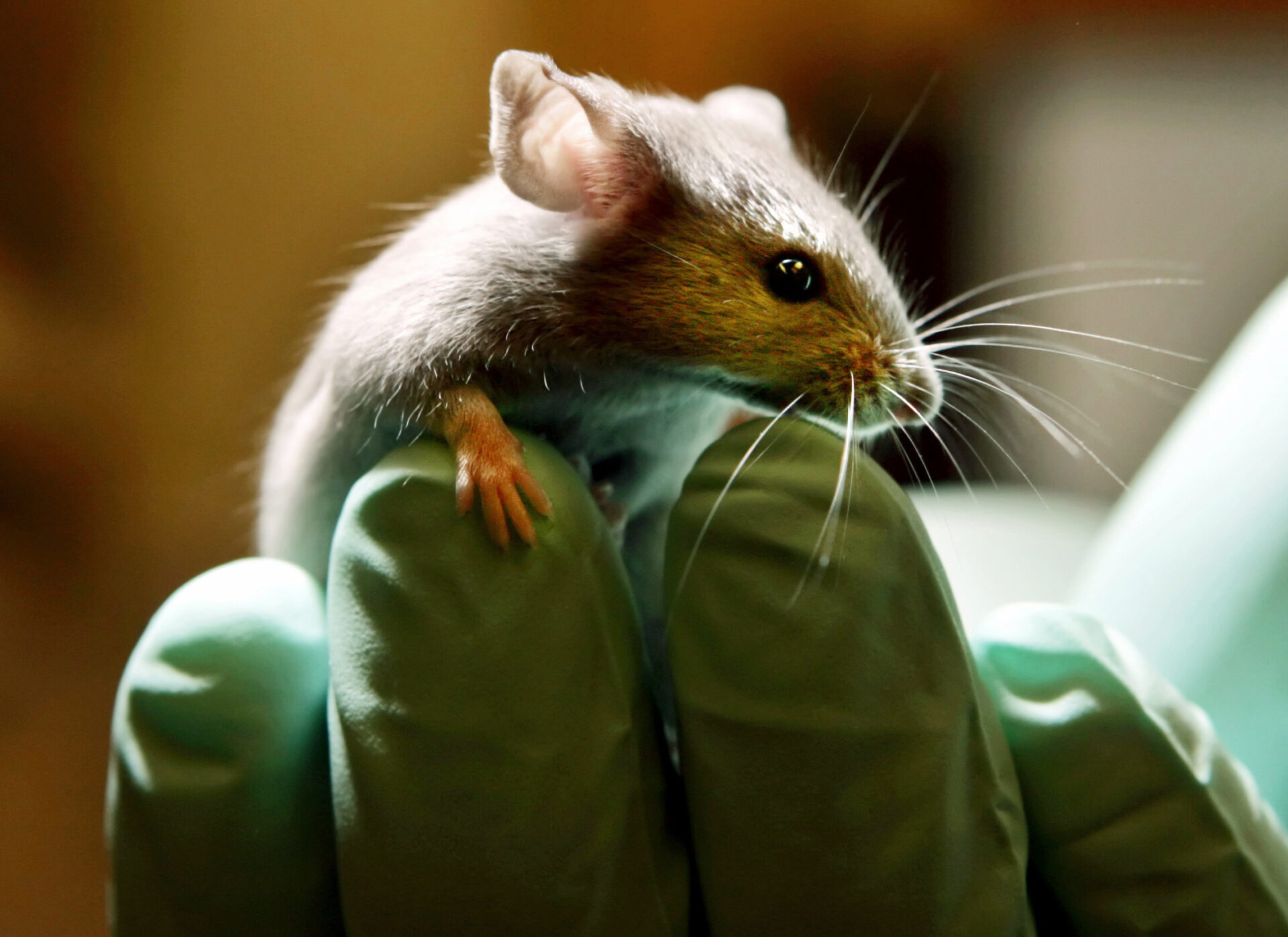Investigating US Funding In Transgender-Related Animal Studies

Table of Contents
Sources of US Funding for Transgender-Related Animal Studies
Securing funding is paramount for any scientific endeavor, and transgender-related animal studies are no exception. Several key players contribute to the financial landscape of this research area.
Federal Funding Agencies
The primary source of funding for many scientific studies in the US comes from federal agencies. The National Institutes of Health (NIH) and the National Science Foundation (NSF) are prominent examples. These agencies operate through a competitive grant application process, where researchers submit detailed proposals outlining their research aims, methodology, and budget. Successful applications receive funding, typically ranging from tens of thousands to millions of dollars depending on the scope and duration of the project.
- Examples of NIH Grants: Searching the NIH RePORTER database reveals grants supporting research on hormonal influences on brain development in rodent models and the effects of hormone therapies on reproductive organs in primates. These studies often contribute to a broader understanding of sex differentiation and its implications.
- NSF Funding: While perhaps less directly involved than the NIH, the NSF might support related research through grants focusing on fundamental biological processes relevant to sex determination and development. Such grants often have a broader scope, encompassing various aspects of biological research.
- Accessing Funding Information: Detailed information about awarded grants, including research summaries and budget details, can be accessed through the official websites of the NIH and NSF.
Private Foundations and Organizations
Beyond federal funding, private foundations and organizations significantly contribute to transgender-related animal research. Many LGBTQ+ focused research foundations and charitable organizations prioritize funding studies aimed at improving the health and well-being of transgender individuals.
- Examples of Private Funders: Several private foundations dedicated to health research, including those with a focus on LGBTQ+ health, support research projects involving animal models. These foundations often have specific funding criteria emphasizing innovative research approaches and potential translational impact.
- Collaborative Efforts: It's not uncommon for private foundations to partner with federal agencies or universities to co-fund research projects, leveraging the strengths and resources of various organizations. These collaborative efforts can significantly enhance the scope and impact of the research undertaken.
University and Institutional Funding
Universities and research institutions themselves play a crucial role in supporting transgender-related animal studies. Many universities offer internal grants and seed funding to researchers within their faculty, fostering the development of new research ideas and collaborations.
- Internal Grant Processes: Most universities have internal grant application processes, providing smaller grants to researchers to support pilot studies or preliminary research, often to secure larger external funding.
- Prominent Universities: Several leading universities with strong biology and medical research programs are actively involved in transgender-related animal research, reflecting the growing importance of this area within academia. These institutions often provide substantial internal support to encourage faculty involvement.
Types of Transgender-Related Animal Studies Receiving US Funding
The research funded encompasses a range of approaches and methodologies, all aimed at furthering our understanding of sex, gender, and their biological underpinnings.
Hormonal Effects on Animal Models
A significant portion of funded research focuses on the impact of hormone therapies on animal models. This includes studies examining the effects of estrogen, testosterone, and other hormones on various aspects of animal physiology and behavior.
- Research Areas: These studies often investigate the effects of hormone therapies on brain development, reproductive systems, and behavioral patterns, aiming to illuminate the complex interplay between hormones and gender identity.
- Animal Models: Rodents (mice, rats) and primates are commonly used animal models due to their physiological similarities to humans, however, the limitations of translating results to human populations remain.
Studies on Sexual Differentiation and Development
Research examining the biological mechanisms of sexual differentiation and development in animals plays a crucial role in understanding the complexities of gender identity.
- Research Questions: These studies address fundamental questions about the interplay of genes, hormones, and environmental factors in shaping sexual characteristics and behavior in animal models.
- Methodologies: This research often involves genetic manipulation, surgical interventions, and hormonal treatments to investigate the impact of these factors on sexual differentiation. Such studies must adhere strictly to ethical guidelines and animal welfare regulations.
Behavioral and Neurological Studies
Investigating the behavioral and neurological effects of hormonal treatments and other interventions is a crucial area of transgender-related animal research.
- Research Topics: This research explores the impact of hormonal treatments on social behavior, cognitive function, and neurological development in animal models.
- Controversies: Certain areas of behavioral research have faced criticism regarding their interpretability and relevance to human gender identity, highlighting the necessity for careful consideration and rigorous methodology.
Ethical Considerations in Transgender-Related Animal Studies
Conducting research using animal models necessitates a rigorous commitment to ethical considerations.
Animal Welfare
The humane treatment of animals is paramount in all research involving animal models. Researchers must adhere strictly to guidelines and regulations set by the Institutional Animal Care and Use Committee (IACUC) to ensure the well-being of the animals.
- IACUC Oversight: All research protocols must receive approval from an IACUC before commencing. This ensures that appropriate measures are in place to minimize animal distress and maximize their welfare.
- Responsible Research Practices: Researchers must adopt the 3Rs (Replacement, Reduction, Refinement) approach to minimize the use of animals, reduce the number of animals used, and refine procedures to minimize any potential pain or distress.
Translatability of Findings to Humans
It's essential to acknowledge the limitations of translating findings from animal studies to human populations. While animal models offer valuable insights, significant differences exist between animal species and humans, particularly regarding the complexities of human gender identity and experience.
- Species Differences: Researchers must carefully consider species-specific differences when interpreting research findings and avoid overgeneralizations about human populations based on animal data.
- Cautious Application: Findings from animal studies should inform but not dictate conclusions about human biology and behavior. A nuanced approach that recognizes the limitations of animal models is crucial.
Public Perception and Transparency
Open communication and public engagement are vital in addressing potential concerns and misconceptions about transgender-related animal studies.
- Open Communication: Researchers should proactively engage with the public to explain the purpose and potential benefits of their work, and address any concerns transparently and responsibly.
- Promoting Trust: Transparency in research practices and funding allocation is crucial to fostering public trust in the scientific process and promoting ethical research practices.
Conclusion
US funding in transgender-related animal studies supports vital research exploring the biological and behavioral aspects of gender identity. While these studies offer valuable insights, careful consideration of ethical implications, including animal welfare, translatability of findings, and public perception, remains paramount. Ongoing dialogue and transparency are essential to ensure responsible scientific progress in this complex and rapidly evolving field. We encourage you to explore resources such as the NIH grants database and ethical guidelines for animal research to further your understanding of transgender-related animal studies and their US funding. Informed discussion and responsible engagement are key to navigating the ethical and scientific challenges inherent in this research area.

Featured Posts
-
 Federal Trade Commission Launches Investigation Into Open Ai And Chat Gpt
May 10, 2025
Federal Trade Commission Launches Investigation Into Open Ai And Chat Gpt
May 10, 2025 -
 Palantir Stock Buy The Dip After 30 Fall
May 10, 2025
Palantir Stock Buy The Dip After 30 Fall
May 10, 2025 -
 Nottingham First Hand Accounts From The Recent Attacks
May 10, 2025
Nottingham First Hand Accounts From The Recent Attacks
May 10, 2025 -
 Palantir Stock Forecast Revised A Deep Dive Into The Market Shift
May 10, 2025
Palantir Stock Forecast Revised A Deep Dive Into The Market Shift
May 10, 2025 -
 Dijon Agression Au Lac Kir Trois Blesses Graves
May 10, 2025
Dijon Agression Au Lac Kir Trois Blesses Graves
May 10, 2025
